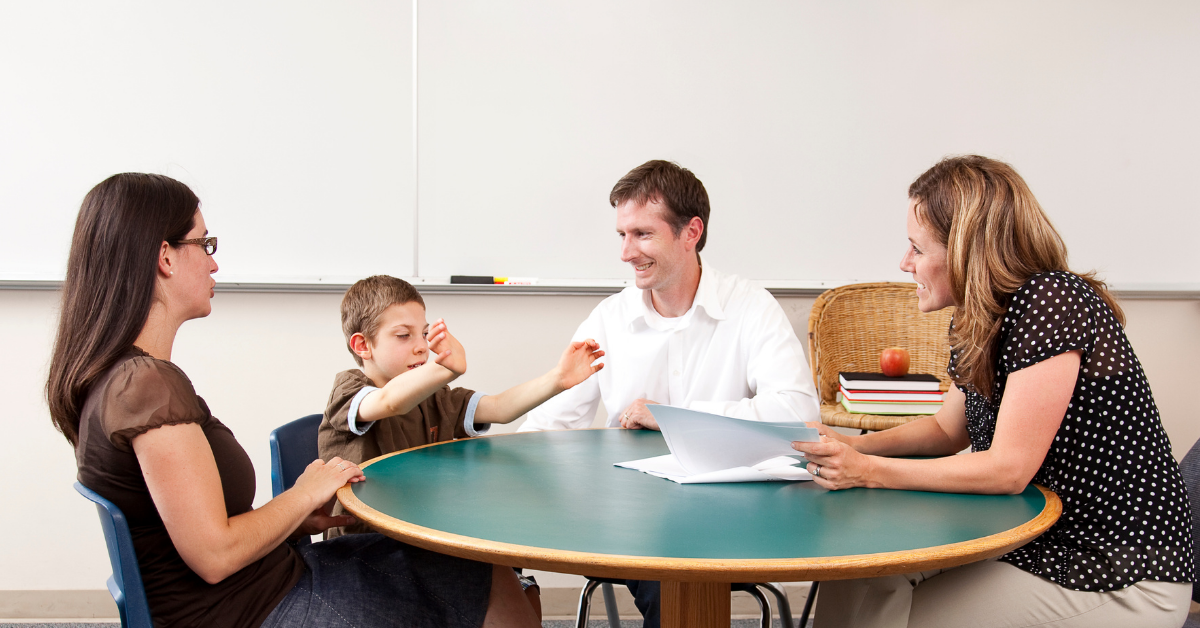America is a land of ideas. Under the Individuals with Disabilities Education Act (IDEA), 7.3 million students received special education services during the 2019-2020 school year. Many parents—especially those of children with learning differences—are familiar with IDEA and associated special education programs. But it's important to really understand the main components of IDEA to become a better advocate for your child.
The six principles of IDEA exist to give all children access to a comprehensive and inclusive education that serves them beyond the classroom.
1. Free Appropriate Public Education
A Free Appropriate Public Education (FAPE) means that a child will receive services that meet their unique needs. Whatever learning differences they have, educators must adapt their methods and help the child learn.
The goal of a FAPE is to build a good foundation for the child to prosper. It will prepare them for further education. But it will also give them the skills to hold a job, live independently, and serve as a public citizen.
Local school boards and individual public schools bear the responsibility for a FAPE. They can receive funding and support from private institutions, charitable organizations, and the federal government. But they are the ones who provide the main services for children.

2. Fitting Evaluation
When an educator suspects a child has learning differences, the school must conduct a fitting and appropriate evaluation. IDEA mandates several components within an evaluation.
A child must receive testing for all areas that an educator suspects they may have differences in. Parents must give their consent for the tests and services.
A team of experienced and trained educators will conduct the evaluation. They can use any instruments that are technically sound. But their evaluation cannot boil down to one measure or statistic.
The evaluation must occur within 60 calendar days of the parent's approval. The parent can request a new evaluation once they receive the results. A re-evaluation must occur every three years so educators can understand how a child is doing.
3. Individualized Education Planning
An Individualized Education Plan (IEP) is the result of the appropriate evaluation. It is a full written document that summarizes where a child is performing in school.
It sets goals for the child to meet and recommends special education programs they should receive. It also provides explanations for why a child is not participating in the general classroom.
An IEP is not set in stone. Re-evaluations mean that the IEP will change over time. As a child gets older, the plan will accommodate suggestions about transitioning into adult life.
The IEP is available to parents, educators, and school administrators. Parents can make suggestions for the plan. If they disagree with it, they can request a mediation hearing.
4. Free Learning Environment
An IEP may recommend extensive accommodations. A child may need a separate environment to cool down when they are feeling stressed.
But it is very important for all children to spend time in a general classroom setting. Accommodations should enable a child to remain in a classroom and participate in activities that other children are doing.
This still leaves educators with many tools and services. Classroom modifications can include time extensions and alternate instructions. A child may receive instructions better when a teacher writes them out instead of reading them aloud.
Some children may not receive a satisfactory education within a classroom environment. An IEP may recommend at-home education as an alternative. The educators at home must make sure that the environment is free from restrictions.
The environment should associate well with what kind of learning style a child has. But there is no explicit requirement under IDEA to match an environment to a learning style.
5. Parent Participation
Parent participation is important at every level of the special education process. If a parent notices learning differences in their child, they can go to administrators for help. Parents should learn how to know if their child needs an IEP so they can do this.
They can give advice on how to conduct evaluations and develop teaching strategies for their child. IDEA mandates that the parents are members of any group that makes decisions for their child. They are equal participants, regardless of their background.

6. Procedural Safeguards
Several safeguards are in place to ensure transparency and legal protection. Parents can receive in writing all important documents, including notices about IEP meetings.
They may review and receive copies of their child's education records. If they notice something they disagree with, they can file a statement of correction.
In addition to mediation, a parent may file written complaints about educators to school administrators. They can also ask for a formal hearing in front of a hearing officer to dispute the terms of a plan.
One year before a child with an IEP turns 18, their school must talk to them about their rights. State law dictates when a child reaches the age of majority and what rights they have. But once they reach the age, the school must ask for the child's consent on educational matters.
The 6 Principles of IDEA
The 6 principles of IDEA ensure a good education for a child with learning differences. A child must receive a FAPE that reflects their needs. A team of educators must evaluate the child for all differences they may have.
An IEP will describe an approach to educating the child. This approach should not restrict the child from being in a general education environment. Parents are active participants in the IEP process with numerous procedural safeguards.
ABOUT EAGLE HILL SCHOOL
For many families working with an IEP, an independent school that specializes in educating students with learning differences may be an appropriate option.
Eagle Hill School is a private school for students with learning differences located in Greenwich, Connecticut. Their academic program is designed to help students struggling with learning differences like auditory processing disorder, dyscalculia, dyslexia, ADHD, executive functioning disorder, and dysgraphia. Specialized remedial learning programs are taught by experienced teachers who help students navigate through learning challenges, preparing them for bright futures ahead. Contact us to learn more.


